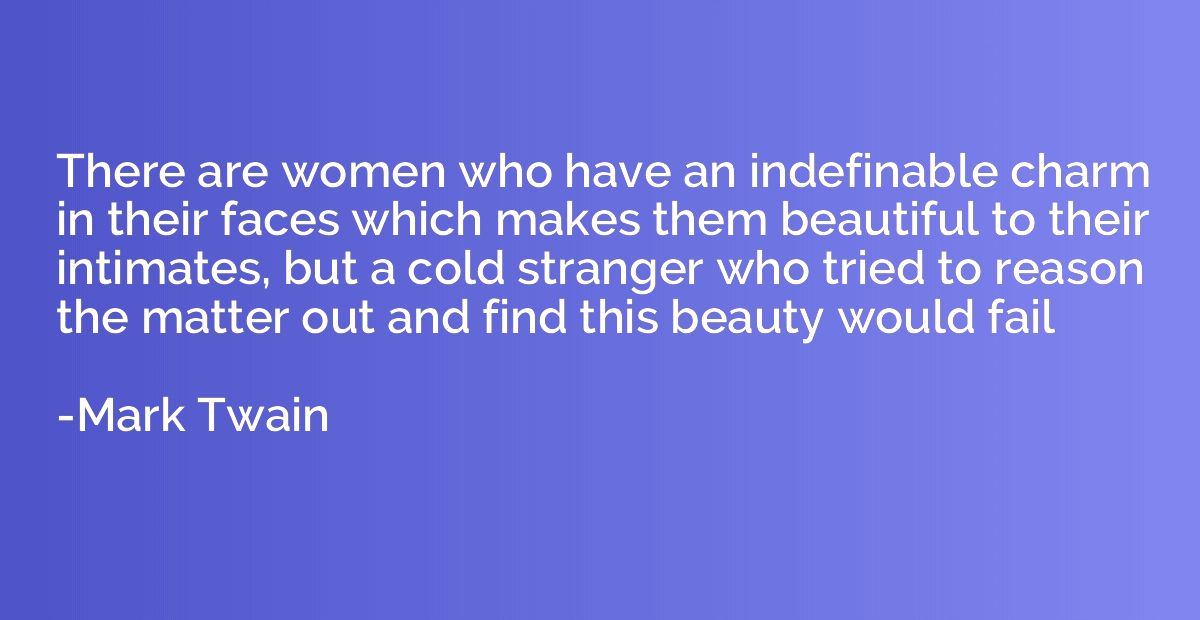Quote by Mark Twain
There are women who have an indefinable charm in their faces which makes them beautiful to their intimates, but a cold stranger who tried to reason the matter out and find this beauty would fail

Summary
This quote suggests that there are certain women who possess a charm and beauty that may not be easily understood or explained by strangers. Their attractiveness lies in an indefinable quality that is appreciated and admired by those who are close to them. The quote implies that attempting to analyze or rationalize this beauty would be futile, as it exists on a deeper, more personal level that cannot be fully comprehended by outsiders.
By Mark Twain














